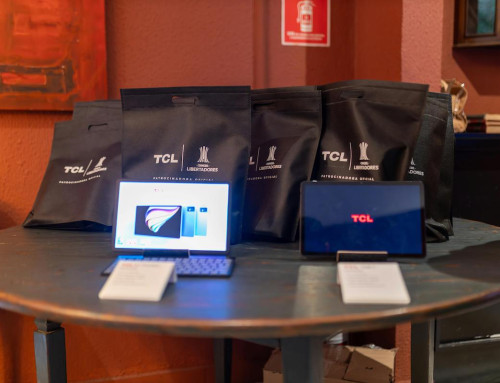The job market is undergoing an epochal transformation. In only a decade, companies have seen the average tenure of their employees going from 20+ to a mere 2.8 years. But, as much as employees tend to leave more often than they used to, they also tend to return to work for their “old” employer.
Up to 10% of the employee base of some Fortune 500 companies are returning employees, those we familiarly call “boomerangs”. Companies are often ill-prepared to manage and take advantage of this new trend. We have seen underperforming employees leave for a stint somewhere else and then be rehired; HR managers bashing talented employees on their way out so that they make sure they will NEVER return.
With an unemployment rate at its lowest in years and a raging war for talent, these are mistakes companies cannot afford anymore. And it’s not only a question of the number of employees leaving or returning: the exposition to the company culture (the secret to cementing employees’ confidence in their work, keeping them motivated and inspired to do their best) of someone who has 20 years of militancy is very different and profound from that of someone who’s been around for only 2.8 years.
[activecampaign form=5]
The concept of “family” that companies have been “selling” their long-standing employees now falters once these leave the company more and more often. If you are part of a family, you don’t stop being part of it when you leave: you still call/write back every so often, you spend time with them during holidays and you go back to it whenever you can or need it.

Here’s why a well-managed alumni network goes a long way into communicating the concept of “family” to your past, current, and future employees, creating a life-long relationship with your “human resources”, expanding and magnifying the real meaning of the term.
Not only does an alumni network allow you to re-hire talented employees who leave the company but to nurture the corporate culture and counts on a solid stakeholder network that expands way beyond the current employee base.
It also allows the company to be ahead of the curve and showcase its innovative and responsible human resources management to its peers, shareholders, and regulators. Engaged employees and alumni will help the company reach its goals in a more efficient way, improving the employer brand, increasing the business, and actively participating in the company’s life.
Let’s take a look at how you can leverage and make money from your corporate alumni network.

Brand Ambassadorship
Building and fostering a relationship with former employees can lead to significant benefits for both the alumni and the organization. Up to 17% of Fortune 500 companies hire brand ambassadors. And who better to promote your brand and attract top talent, than the quality talent you employed before? Leading organizations know that these make the best brand advocates. Engaged alumni maintain a connection with the company and actively participate in networking opportunities, mentoring programs, and other events. They have a sense of attachment and loyalty towards the organization, and they use their experiences and skills to support and advocate for their former colleagues.
Business
Alumni are the most loyal consumers of the company’s products and services, but are also a valuable resource for business development, providing leads and opportunities for partnerships or collaborations. They can also be a source of knowledge and expertise, as they bring a unique perspective from their experiences with the company. Engaged corporate alumni may also have higher levels of job satisfaction and career success, as they have access to a network of contacts and opportunities for professional development.

Re-hiring
It is difficult to provide an exact number as the rate of boomerang employees (those who leave a company and later return) can vary depending on the industry, company culture, and job market conditions. However, according to a study conducted by Workplace Insights, 76% of HR professionals said that they are more likely to rehire a former employee than in the past, indicating that the trend of boomerang employees is growing. Another survey by Workplace Trends found that 15% of employees have returned to a former employer at some point in their career. Additionally, some large companies such as Google, Amazon, Deloitte or Citi, have reported that boomerang employees make up a significant portion of their workforce.
1. Lower Recruitment Costs
Alumni can provide the best referrals: they are well aware of how your business works, and what constitutes a right fit from a business and employee perspective. Through alumni, companies can attract top talent in a fraction of the time, and aster results also mean lower recruitment costs. But as we said, today more and more alumni return to work for their previous employers. Large organizations can save up to $50,000 USD for each re-hire: one-third being the head-hunting fee and the rest is efficiency gains. Boomerang employees hit the ground running and waste no time in being productive.
2. Reduced Onboarding time
Because they have worked for the company before, boomerang employees are already familiar with its culture, policies, and procedures. They also have a network of contacts within the company, making it easier for them to navigate their new role and build relationships with colleagues. As a result, boomerang employees can quickly integrate into their new position and start contributing to the organization’s goals without requiring extensive onboarding or training. Additionally, because they already know the company’s expectations and have experience with the organization’s processes and systems, they may require less supervision than a new hire, which can save the company time and resources.
3. Faster Position Filling
Over 70% of employees (source) regret leaving good jobs and want to return. And when you have made a special effort to cultivate a solid relationship with them, it makes the art of boomerang hires seamless. There’s another way that these former employees can be of use in filling top positions, through the use of a referral program. With referrals from your top corporate alumni, filling key positions at the company is a lot faster. This is because of the broadened corporate relationships formed whilst out in the field growing their expertise and networks.
4. Better Cultural Fit
Boomerang employees are a better cultural fit for the organization for several reasons. First, they have already experienced the company culture, values, and work environment, and have chosen to return because they believe that the organization aligns with their own values and goals. Second, boomerang employees have a network of contacts within the organization and are familiar with the company’s communication and collaboration practices, making it easier for them to fit in with their team and build relationships with colleagues. Third, because they have already worked for the company, they have a deeper understanding of the organization’s expectations and performance standards, which can lead to a smoother transition into their new role. Finally, because they are familiar with the company’s policies and procedures, they are less likely to experience culture shock or misunderstandings, which improves their overall job satisfaction and performance.

Other Benefits
1. Staff Retention
As the name suggests, staff retention is the practice of finding ways to keep staff members motivated and satisfied in their jobs and at the company – so that they don’t up and leave. The aim is to ensure employees are focused, and dedicated to their roles so that they are productive, produce quality work, add value and stay employed for the long term. Implementing an employee retention program is an effective means of attracting and retaining talent. It is a cost-effective way to decrease staff turnover and recruitment costs. This can be achieved through the use of a successfully run corporate alumni platform.
In order to ensure your employees have optimal levels of job satisfaction, here is a list of five key factors to consider:
- Market-related compensation packages
- Trust and open communication between staff and top-level management
- Adequate job security
- Respectful treatment of staff members through all day-to-day practices
- Open opportunities and autonomy to showcase skills and abilities
Executing prosperous staff retention can be incredibly valuable for your organization from a brand and rehiring perspective.
2. Succession Planning
The method of succession planning can be hugely beneficial for businesses. It comprises focusing on the development of key employees to ultimately transition them into leaders of the organization. Handing over the baton to new leadership may be a stressful process. How do you know if they are ready for the added responsibility? According to Gartner, Inc. over a third of HR leaders struggle to develop effective senior leaders, while 45% are not confident about the development of mid-level executives. Naturally, most succession planning efforts are conducted in-house.
This makes sense, as your existing staff are already privy to the operational intricacies of your business and will have the experience and insights that newcomers may not have. This asks the question: how can you ensure that this process is well-executed and a smooth transition for all the parties involved? Enter, your corporate alumni. They are the ideal talent pool for searching for suitable candidates. And if they aren’t open to returning, they may have some recommendations for the best candidates for the position.
3. Future Expansions
When you stay in touch with your corporate alumni, you leave the door open for future expansion. One great example is Paypal. Their alumni were responsible for the founding of LinkedIn, Yelp, YouTube, Tesla, and SpaceX. You may not have grandiose expansion plans at this very moment, but the fact remains that successful and innovative networking breeds the opportunity for a great return on investment. Close partnerships formed with alumni may prove very useful for your future endeavours.

Top 3 Ways To Leverage Value From Your Corporate Alumni Network
It’s clear that having a network of corporate alumni is vital for any business, but how exactly do you put this into practice? Here are some practical ways to leverage your talent pool and leverage value for your company.
-
Establish & Maintain An Engaging Corporate Alumni Network
Establish a corporate alumni network early on when employees first join your organization. Then, after they leave, the foundation of the relationship will have been formed. One of the key strategies in running a successful corporate alumni network is to maintain contact, engage regularly, and provide extensive value to your alumni community. Staying abreast of any new developments in their career could potentially help you to identify the best candidates for specific developments in your organization and possible networking opportunities.
What Alumni Expect For Their Cooperation
From academic research, we learned that alumni were more inclined on maintaining long-term relationships with their former employers for four main reasons:
- Enhancing their current careers or businesses
- Reconnecting with former colleagues
- Supporting the purpose and goals of the alumni network
- Benefits and perks afforded to them by the alumni network
Meet Their Needs And They’ll Meet Yours
Meeting these motivations and expectations means that alumni are more inclined to share positive reviews of your alumni network and their former employer as a whole. This could be further enhanced through alumni newsletters, webinars, as well as social events.

-
Organize Regular Networking Events
Regular meet-up events are paramount. This creates opportunities for deep conversations and strong bonds to form. Basically, the perfect networking opportunity. An effective strategy to entice your community to participate is inviting guest speakers in their respective industries to speak at your gatherings. This is also a chance to reach out to others who, while not in your network, are respected peers in your business sector. This will assist you in growing your network. As virtual meetings and video conferencing are the norms in an ever-increasing digital world, make the most of these platforms in your alumni networking events. Organizing virtual events is an easy fix to create a platform for more participation. This will also enable you to invite guest speakers from across the globe to participate too.

-
Set Definable Goals For Your Collaboration
When establishing your corporate alumni network, setting clear, obtainable goals is critical. It is also essential that you revisit your set goals and KPIs on a quarterly, bi-annual or annual basis to ensure that you are achieving your objectives, and updating your goals to achieve maximum network efficiency.
Business Goals
Your corporate alumni are a wealth of knowledge, skills, and resources. You can put this to use in several ways. Business partnerships and mentoring programs are two that particularly stand out. There is also an opportunity for launching “corporate think tanks”, which will assist in incorporating all the expertise, problem-solving skills, and innovation that your alumni members collectively have to offer.
CSR Goals
As opposed to managing only the goals of your alumni network, factor in the collective goals of your corporate social responsibility (CSR). More than 90% of the largest 250 U.S. companies published a CSR report in 2022, and this is likely to increase. Alumni members are well-poised to assist with corporate social responsibility goals. CSR, while initially seen as an expense, can lead to far greater returns in the future. This is not only due to the more positive reputation that the company will benefit from, but it may also lead to job creation. It is also a method to entice members to not only join your network but also engage heavily and add value.

Conclusion
The importance of corporate alumni networks is becoming clearer to more and more businesses. If you want to maximize your profits, establish long-term business partnerships, and recruit top talent, launching and managing a successful corporate alumni network is paramount.
The research findings are indisputable. Most former executives want to return or at least be involved with a company with a reputable and high standing.
Leveraging and value from your corporate alumni network is simple. Engage with your community members on a regular basis, add value by sending them enriching content, and make the effort to organize live or virtual events to bring them together and create long-term, resourceful relationships.
When using a reliable platform to bring your network together, the heavy lifting is done for you, creating a seamless experience for both the organization and the corporate alumni members.
SUMMARY
Corporate alumni can be a valuable asset in several ways. They can:
1) Return to work for the company themselves or serve as a source of referrals for new hires, as they have a firsthand understanding of the company culture and what qualities are necessary to succeed in the organization.
2) Represent a valuable resource for business development, either being direct consumers of the company’s products or providing leads and opportunities for partnerships or collaborations.
3) Be brand ambassadors, speaking positively about their former employer and promoting the organization to others.
4) Provide a unique perspective on the company, bringing insights and knowledge from their experiences that can be leveraged for business improvement.
5) Are a source of mentorship and support for current employees, offering guidance and advice based on their own experiences.





